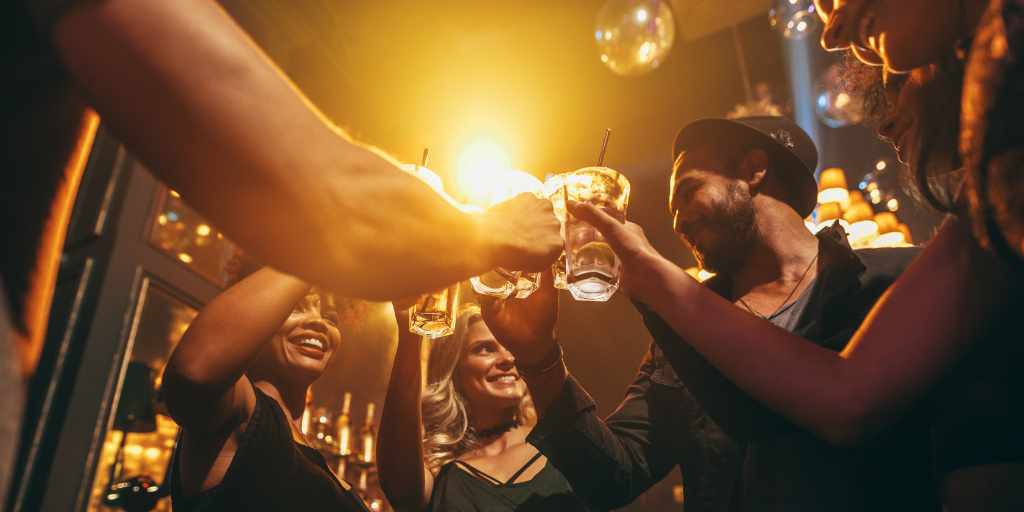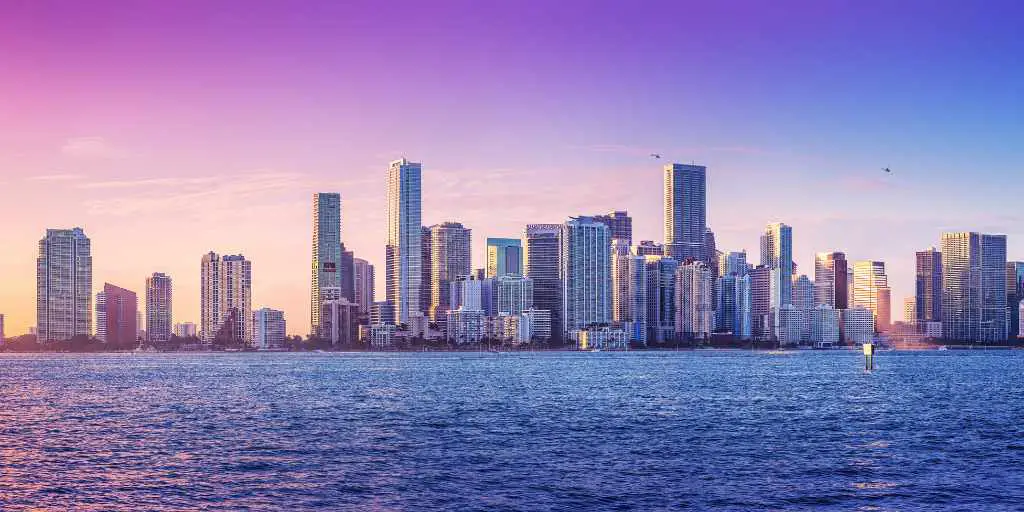Behind every great drink, there’s a great bartender. But what happens when that bartender decides to have a drink of their own while on the job? In this deep dive, we explore the controversial topic of drinking while working as a bartender.
From the pros and cons to the legal implications and the impact on the bartender and the bar itself, we take a closer look at the various sides of this debate. So, whether you’re a bartender, a bar owner, or just curious, grab a drink and join us as we raise a glass to the question: is it legal for bartenders to drink on the job?
Is it Legal for Bartenders to Drink on the Job?
The legality of bartenders drinking at work varies depending on the country, state, and establishment. In most places, bartenders are not allowed to consume alcohol while working, however some bars may have different policies and exceptions. It is important to check the laws and policies of the specific establishment to understand if drinking while on duty is allowed or not.
While some bars may allow their bartenders to drink on the job, they must take extra precautions to ensure that the bartenders are not over-serving or becoming intoxicated.
Additionally, many bars have strict policies in place to ensure that their bartenders are not drinking while working, and any violation of these policies could result in serious consequences.
Why Do Bartenders Drink on the Job?
Some bartenders choose to drink on the job for a variety of reasons. For some, it may be to understand better the different types of alcohol available, as this can give bartenders a better understanding of what to recommend to customers.
Additionally, some bartenders may choose to drink on the job to help them relax and create a more welcoming atmosphere for customers.
However, it is important to note that drinking on the job is not always advisable and should be done with caution. Unfortunately, some also drink due to stress or issues with alcohol abuse, so care should be taken so that any drinking does not become a problem for bartenders, the business and the customers.
What is Not Drinking Behind the Bar?
It is generally not allowed to drink behind the bar while on duty, as drinking on the job can be considered drinking.
If the bar owner allows employees to have a free shift drink, this is typically not considered drinking behind the bar as long as you have signed out and are no longer on the clock.
However, many states have laws prohibiting drinking behind the bar, even if you are off the clock. Therefore, it is best to avoid any situation where you may be considered to be drinking while on duty.
Additionally, it is important to remember that even if you are not working, you should not be under the influence of alcohol while behind the bar.
In certain circumstances, such as if the bar manager is trying wines with a salesperson or if a customer complains that their drink is weak and demands you taste it, drinking behind the bar may be necessary. However, these are extreme cases, and it is best to exercise caution and, when possible, politely decline to taste the drink or have a customer taste it instead.
Ultimately, drinking behind the bar should be done in moderation and with full knowledge of the laws in the area.
Do You Want to Drink Behind the Bar?
At the end of the day, the choice to drink behind the bar is yours. Know the law in your state and the house policy, and make an informed decision. Some people will have one draink at the start of their shift (if the bar allows it) to get into the spirit. Others prefer to have a drink with co-workers after a long night, while others choose not to drink at all.
Is it Legal in Your State?
Unlike many European countries like the UK, Germany or France, drinking on the job is not legal in all US states and Canadian provinces. The laws vary from state to state, and there are exceptions and other related laws around it. For instance, in Alaska, you can drink while working but can’t be intoxicated; otherwise, the law states you could be arrested.
This article breaks down the legality of drinking while working in US states. For example, in California, it’s illegal to drink while bartending, but there is a loophole known as the “tastings exception” This exception is in place so bartenders can evaluate the quality of the alcohol they are serving. It is important to note that this exception has specific rules, such as only drinking to taste and not for intoxication. Additionally, bartenders are only allowed to drink during their shift, not before or after. By understanding and following these rules, bartenders can take advantage of the “tastings exception” and ensure that customers receive the best possible experience.
US States Where Servers Can Legally Drink
Barring any house policies, these states either allow it or do not have laws specifically against drinking while at work.
Does the Boss Allow Drinking Behind the Bar?
Considering the implications of allowing bartenders to drink on the job is important. This includes potential risks such as liability, lost profit, and low performance. These consequences should be carefully considered before allowing bartenders to drink while working.
- Liability If a patron that frequents your bar consumes too much alcohol and is then involved in an accident, your bar can be held responsible. Similarly, you could be sued if a bartender drinks on the job and then is hurt or has legal issues. Speaking to a lawyer about shielding your business from any issues arising from bartenders drinking is important.
- Lost Profit When a bartender pours themselves a drink “on the house”, this can lead to a significant amount of lost revenue. Not to mention, your inventory will no longer be accurate.
- Low Performance Experienced bartenders may be able to handle themselves while drinking on the job. However, novice bartenders may be unable to handle money and service customers while under the influence.
- License Before you allow bartenders to drink on the job, make sure to check with your state and local laws. Failure to do so could put your liquor license in jeopardy.
For these reasons, management at many bars, especially corporate-chains bars discourage drinking during or after shifts.
FAQ Can Bartenders Drink on the Job
Here are some questions we’ve found people ask about servers and staff drinking on the job.
Can Bartenders Do Shots With Customers?
Even if it is legal in your state, it’s important to consider the potential risks and consequences of doing shots with customers. It can blur the line between professional and personal interactions, and can also create a perception that the bartender is not in control or able to maintain a professional demeanor.
It’s also important to remember that the primary responsibility of the bartender is to ensure the safety of the customers and to avoid over-serving or contributing to any kind of intoxication. Doing shots with customers could compromise this duty and lead to legal or ethical issues.
It’s best to avoid doing shots with customers, and to focus on providing excellent customer service and a safe drinking environment.
Do Bartenders Drink a Lot?
There is no definitive answer to how much bartenders drink, as it can vary greatly depending on the individual bartender and their personal habits. Some bartenders may choose to drink more frequently or in greater quantities than others, while others may choose to abstain from drinking altogether.
However, it’s not uncommon for bartenders to have a drink or two during their shift, this is especially true when they are off-duty and are no longer working.
Additionally, some bartenders may have a drinking problem or issues with alcohol abuse, which could lead to excessive drinking and other negative consequences. It’s important for bartenders to be aware of their own drinking habits and to seek help if they feel that their drinking is becoming a problem.
When Bartenders Drink on the Job, Do They Pay?
When bartenders drink on the job, it varies from establishment to establishment on whether they pay or not. Some bars may allow their bartenders to drink on the job for free, while others may require that they pay for their drinks just like any other customer.
According to one article, one bartender who’s worked at many bars said that that many places he has worked at allowed bartenders to drink on the job and one bar required that bartenders pay for their drinks, which kept things simple and honest. He also mentioned that bartenders were required to “go dry” for a short time to avoid overindulging. He also describes a comp system at another bar where senior bartenders were given a $25 comp tab per shift, which could be used on customers or for bartenders to have a drink or two with them. The comped drinks were recorded to ensure they matched up with the bar’s beverage inventory numbers.
Do Managers Allow Drinking at the Bar After Work?
This article discusses the opinions of bar managers on whether or not they allow bartenders to drink after their shift. The managers were split 50/50 on the issue.
Some managers prohibited employees from drinking at the bar after work, citing concerns about liability and unprofessional behavior.
Others allowed employees to have a drink after their shift, but had strict limits in place to prevent abuse. The article also warns that some states prohibit alcohol consumption by anyone, including staff, even after the bar has closed.
It advises managers to check with state and local laws and to put a plan in place that protects bartenders, patrons, and the health of the business.
Conclusion
In conclusion, the issue of drinking while working as a bartender is a complex one with many considerations. From understanding the laws and regulations in your state to being aware of the potential consequences for both the bartender and the bar, it’s important to approach this topic with caution. While some bartenders may choose to drink on the job for professional or personal reasons, it’s crucial to always prioritize safety and responsibility. Ultimately, the decision to drink behind the bar should be made with full knowledge of the laws and house policy, and with a commitment to making an informed and responsible choice.




